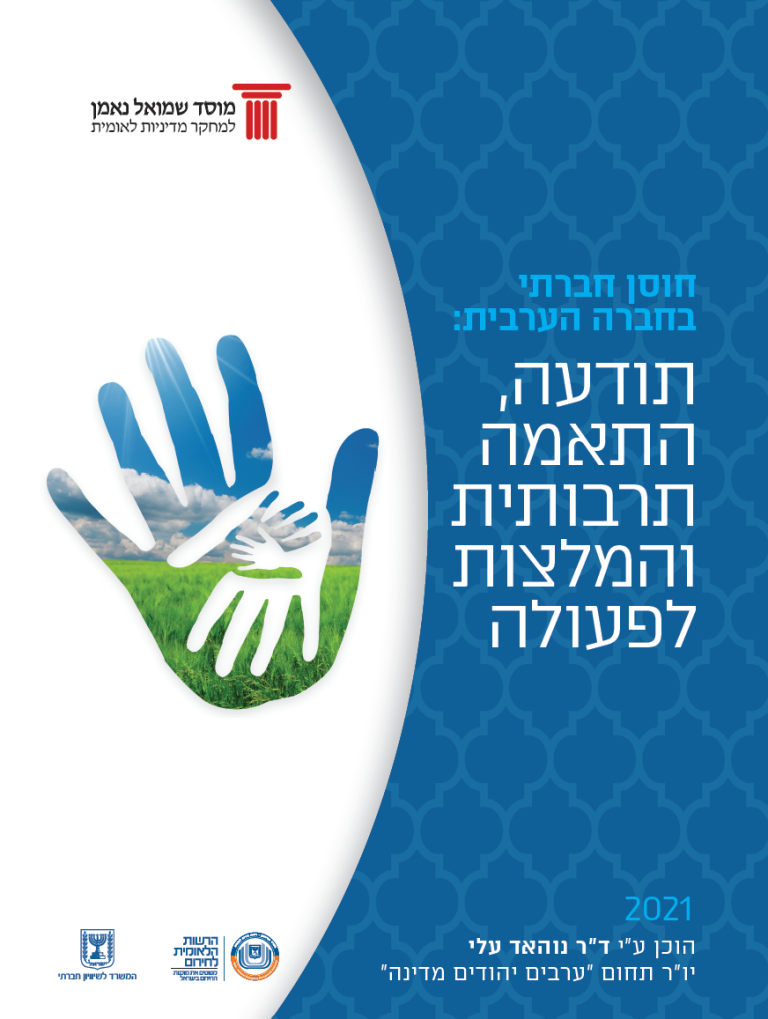The preoccupation with resilience and emergency preparedness is currently in a central place in the public, political and academic discourse. This work is not unique to Israel, however, in the world the practice of resilience is in the context of natural disasters, while in Israel, the practice is mainly in the context of security issues, among the Arab minority in Israel This discourse is still in its infancy and research literature on it is still rare. Since 1948, Arab society in Israel has experienced many changes in all areas of life: society, economy, education, status of women, family structure, socio-cultural changes and more. There are almost no area in which no change has taken place. The proposed plan deals with change in another area, the field of resilience.
The overarching goal of the program is to strengthen the resilience of Arab society in an intersectoral perspective. Several operative goals were derived from this goal, including: putting the issues of resilience in an emergency on the discourse map in Arab society; Mapping special needs for the Arab society to increase resilience in emergency preparedness;
Creating unique dynamics in communication with key people in civil society and organizations together with the heads of local government in Arab society and government officials leading government programs operating in Arab society; Mapping unique inter-sector interfaces, which can contribute to strengthening resilience the social and emergency preparedness; Establishing an inter-sector advisory committee and building a tailored work plan culturally dead to strengthen resilience in Arab society.
The research used the qualitative methodology: several round tables were held for brainstorming in the north, center, and south and two round tables with representatives of the government ministries in Jerusalem, as well as a work table with the committee of heads of Arab local authorities that met in Shafaram. The methodology included, among other things, the establishment of a joint steering committee for the Rachel, the Ministry for Social Equality, Mossad
Shmuel Naman and with the participation of Pekar.
Among the invited participants were representatives of the Arab local government, government representatives, representatives of Arab and Arab-Jewish civil society, representatives of the National Student Union and the Arab Student Association, representatives of Arab academia, representatives of parents’ committees in Arab schools, representatives of Businessmen, representatives of the committee of heads of the Arab local authorities and more.
The research found significant agents of change and also the main platforms in Arab society with which to build a partnership and lead a pilot to strengthen resilience in Arab society.
These include: young parents, women, civil society associations, formal and informal education, government local and clergy.
The study offers an applied action plan to strengthen resilience in Arab society. The program was built after extensive infrastructure work, which also included mapping active associations in Arab society and a preliminary review of government programs that operate in Arab society and can serve as a platform to strengthen social resilience.
The program is the product of a collaborative and participatory dialogue with authentic representatives of the Arab society and cooperation with the relevant government ministries, while listening to the field and getting to know in-depth with the characteristics and uniqueness of Arab society.
* For the Mongesh report, read the file: ‘Social Resilience in the Arab Society_Mongesh’












